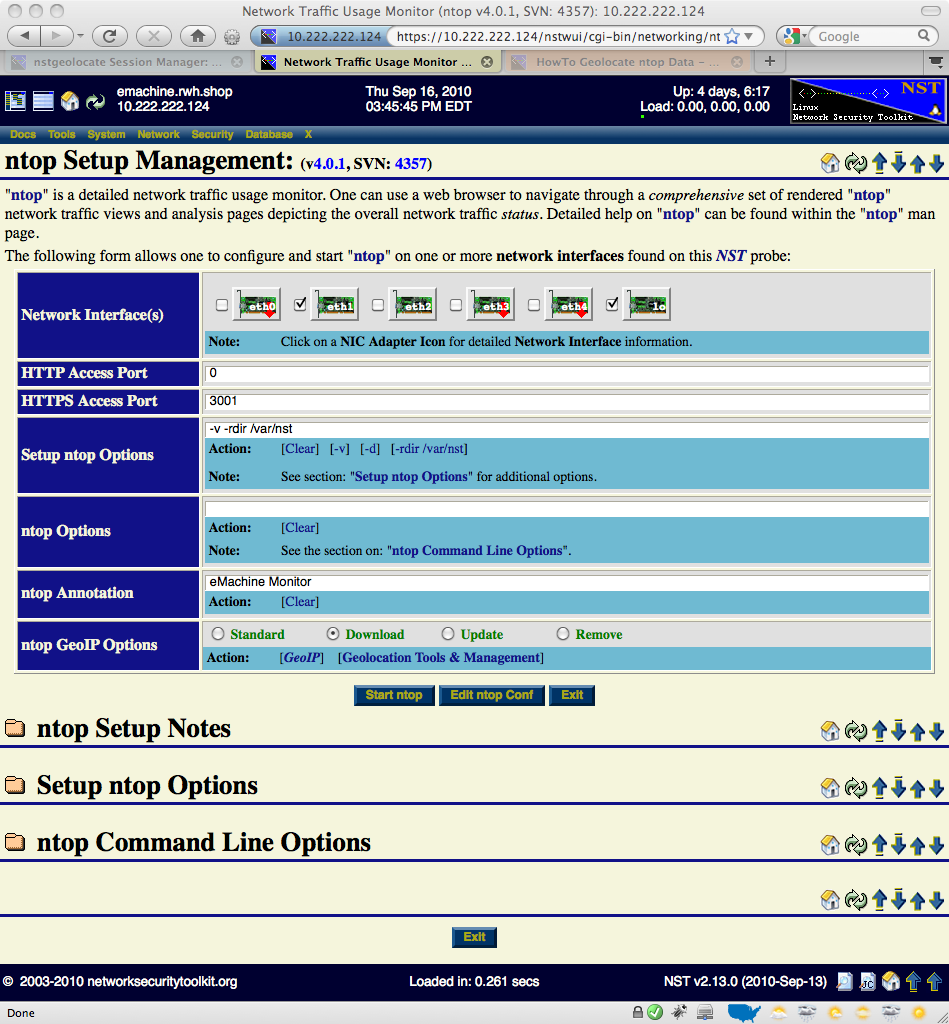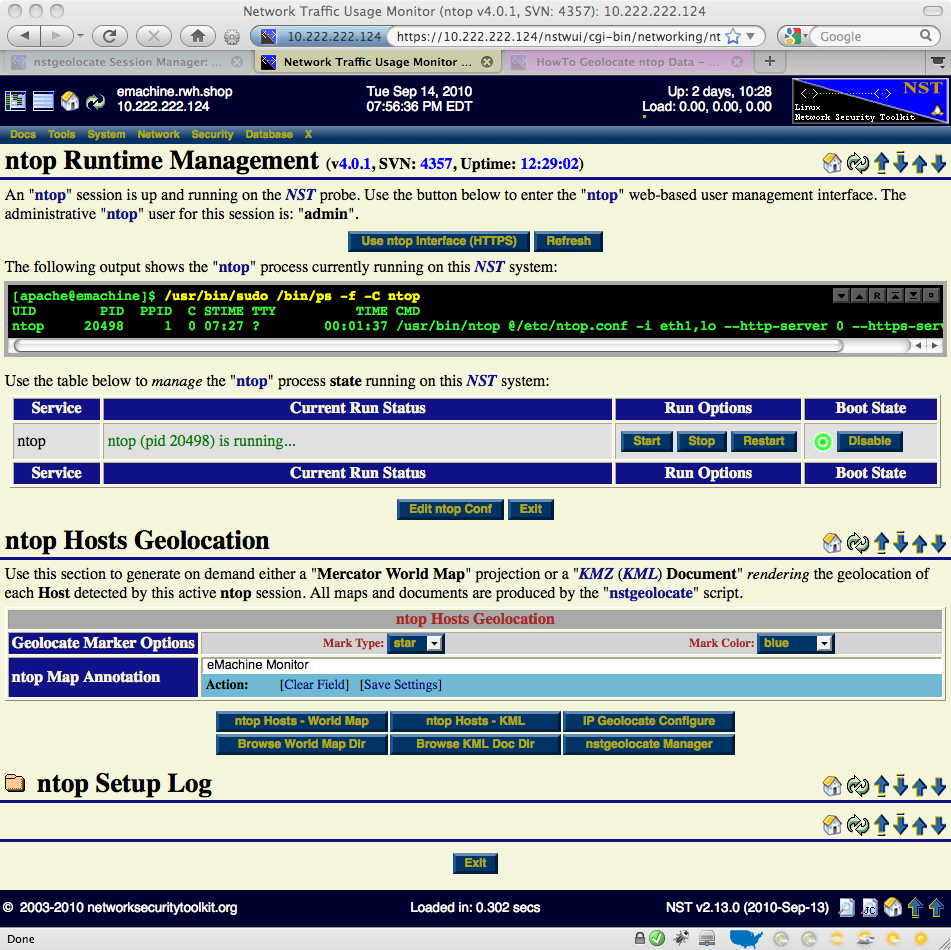HowTo Geolocate ntop Data
Overview
This HowTo explains the procedure for setting up an ntop session and producing on demand host geolocations rendered on either a Mercator World Map projection or on a KML Earth Browser such as Google Earth, Google Maps or Marble.
One of the goals of the NST WUI is to provide a web-based front-end to numerous open source network security applications. Trying to build out a web-based interface that has a common look-and-feel across the vast spectrum of applications is a daunting task. Once an NST WUI interface is mastered, it will become a routine task to use it across different NST systems and environments.
Before diving into producing ntop Hosts Geolocations, one needs to understand best practices on how to setup an ntop session as a Host data source collector. This first involves getting ntop up and running using the NST WUI management interface for ntop and then secondly filtering how much data ntop is configured to collect using ntop administrative controls.
The input and selections fields for setting up an ntop session using the NST WUI interface will be explained so that it will become routine across NST systems.
ntop Setup
This section describes how to setup an ntop session using the NST WUI.

The image above depicts the NST WUI ntop setup management page. Use the following steps to setup an ntop session.
ntop Runtime Management
Once an ntop session is up and running, one can now produce on demand host geolocations.
